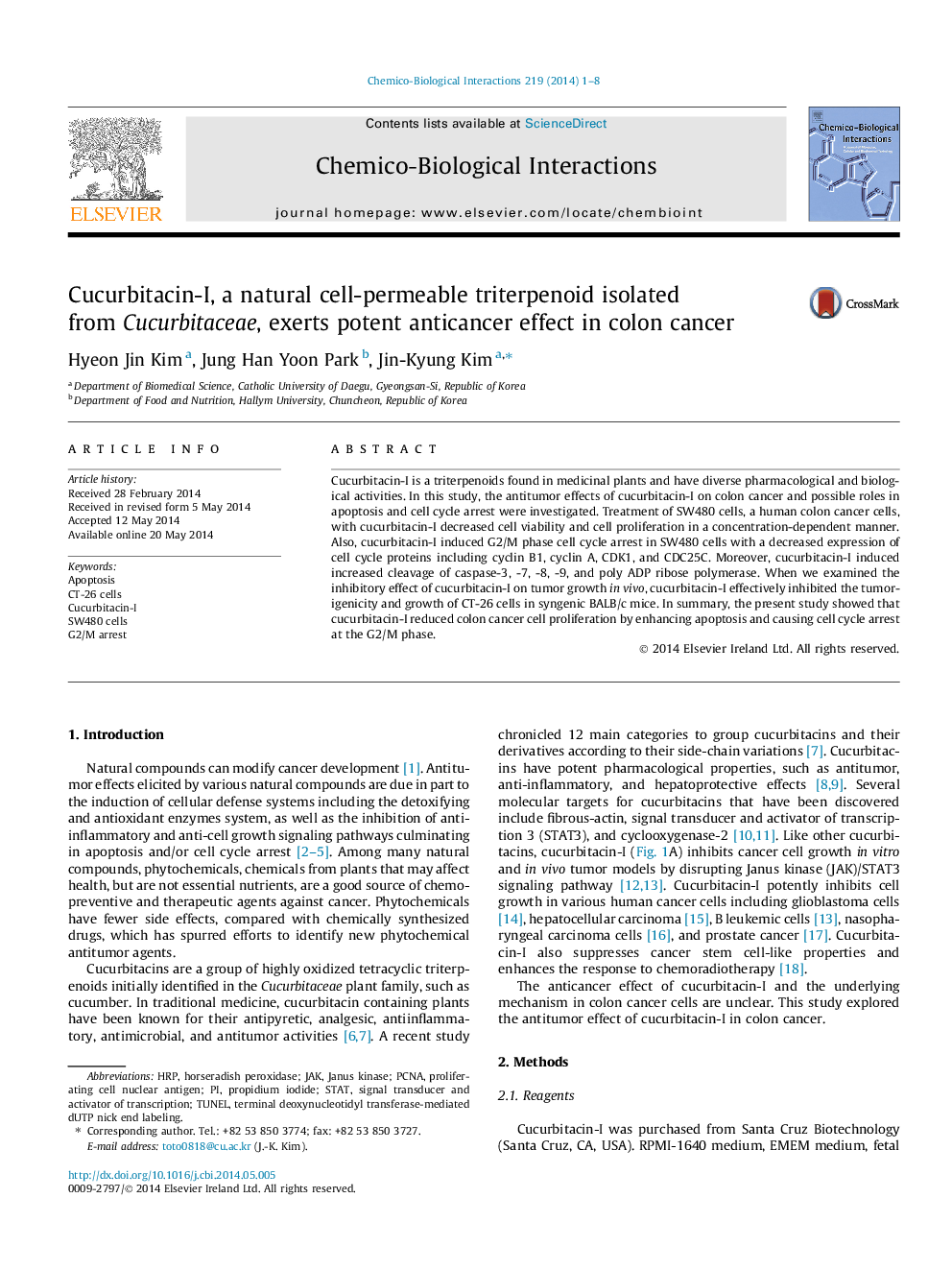| Article ID | Journal | Published Year | Pages | File Type |
|---|---|---|---|---|
| 2580439 | Chemico-Biological Interactions | 2014 | 8 Pages |
•Cucurbitacin-I induced apoptosis of human colon cancer cells.•Cucurbitacin-I blocked cell cycle progression at G2/M phase in human colon cancer cells.•Cucurbitacin-I treatment significantly reduced tumor growth in syngenic BALB/c mice.
Cucurbitacin-I is a triterpenoids found in medicinal plants and have diverse pharmacological and biological activities. In this study, the antitumor effects of cucurbitacin-I on colon cancer and possible roles in apoptosis and cell cycle arrest were investigated. Treatment of SW480 cells, a human colon cancer cells, with cucurbitacin-I decreased cell viability and cell proliferation in a concentration-dependent manner. Also, cucurbitacin-I induced G2/M phase cell cycle arrest in SW480 cells with a decreased expression of cell cycle proteins including cyclin B1, cyclin A, CDK1, and CDC25C. Moreover, cucurbitacin-I induced increased cleavage of caspase-3, -7, -8, -9, and poly ADP ribose polymerase. When we examined the inhibitory effect of cucurbitacin-I on tumor growth in vivo, cucurbitacin-I effectively inhibited the tumorigenicity and growth of CT-26 cells in syngenic BALB/c mice. In summary, the present study showed that cucurbitacin-I reduced colon cancer cell proliferation by enhancing apoptosis and causing cell cycle arrest at the G2/M phase.
Graphical abstractFigure optionsDownload full-size imageDownload as PowerPoint slide
